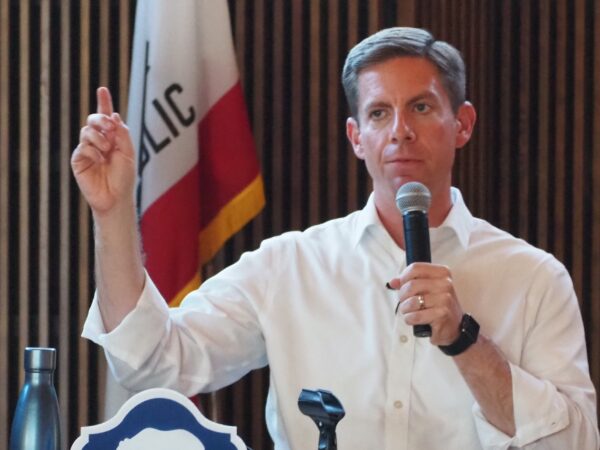
Subcommittee chairman and U.S. Rep. Mike Levin (D-Calif.) led a hearing on veterans food insecurity on July 11. (Photo: Luke Harold)
Among other critical findings, a July 11 Congressional hearing held by the U.S. House Veterans Affairs Committee unearthed a discrepancy in the percentage of veterans experiencing food insecurity reported by the U.S. Department of Veterans Affairs and the U.S. Department of Agriculture.
The hearing was chaired by Reps. Mike Levin and Mark Takano (D-Calif.).
VA studies note that between two and three percent of all veterans suffer food insecurity while the USDA found the figure to be closer to nine to 10 percent. Neither department could determine the exact cause for the discrepancy, although differing screening methods were cited as a likely cause.
Additionally, the USDA reported that veterans are 7.4 percent more likely to suffer from food insecurity than nonveterans.
Government bodies, nonprofits, and veterans service organizations including the San Diego Hunger Coalition, San Diego Food Bank, 211 San Diego, and US4Warriors were also part of the hearing, all noting that food insecurity among veterans is a growing issue made worse by the COVID-19 pandemic and resulting economic crisis.
Economic conditions in San Diego were used as a case study to evaluate the growing issue. Key findings include:
- Women veterans are more likely than any other group to be food insecure, with veterans of color and disabled veterans also being at high risk.
- Veterans are less likely than nonveterans to seek or accept food assistance from public or nonprofit sectors. Each panelist group cited “pride” and “stigmas surrounding food insecurity” as the top reasons. However, 211 San Diego found that 32 percent of surveyed San Diego veterans were unaware of food assistance programs.
- Both 211 San Diego and US4Warriors cited an unnamed study in their oral presentation that veterans with a documented mental illness are 10 times more likely to be food insecure. 211 San Diego also reported that veterans in “poor health” are three times more likely to be food insecure than healthy veterans.
- San Diego Food Bank and San Diego Hunger Coalition both noted that the cost of living and employment market in San Diego was extremely prohibitive to addressing food insecurity issues among veterans and nonveterans.
VA panelist Dr. Christine Going said the VA had recently created a specific and permanent office to address food insecurity among veterans.













